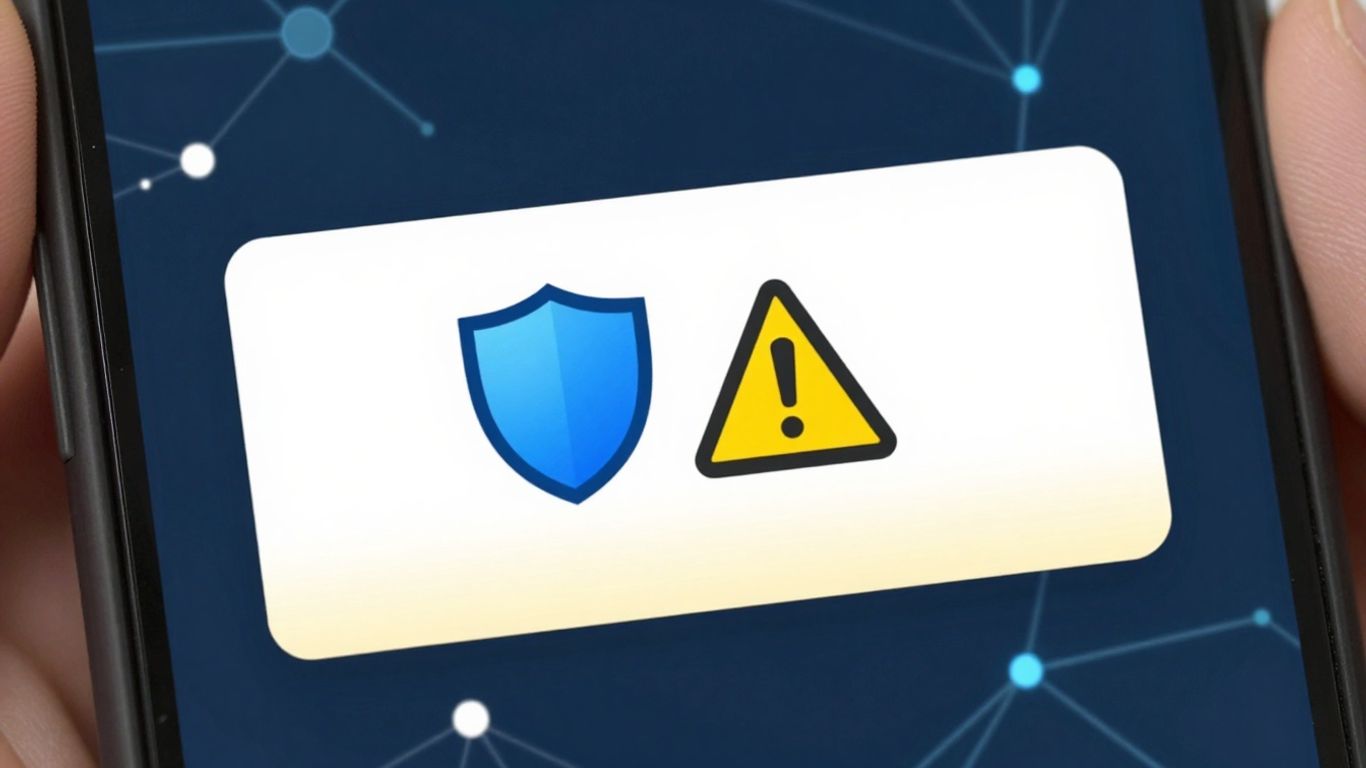[ newsletter ]
Stay ahead of Web3 threats—subscribe to our newsletter for the latest in blockchain security insights and updates.
Thank you! Your submission has been received!
Oops! Something went wrong. Please try again.
Explore how smart contract insurance transforms risk management with automation, transparency, and efficiency.





The landscape of insurance is undergoing a significant transformation thanks to smart contract insurance. By utilizing blockchain technology, this innovative approach is changing how risks are managed, claims are processed, and policies are issued. Smart contracts automate many tasks, making the insurance process faster and more transparent. This article explores how smart contract insurance is reshaping modern finance, highlighting its benefits, applications, challenges, and the future of risk management.
Smart contract insurance is really changing how insurance works. It's not just about making things digital; it's about making them smarter, faster, and more reliable. Traditional insurance processes can be slow and full of paperwork, but smart contracts? They automate a lot of that, which means things get done quicker and with fewer mistakes. It's a big deal for both insurance companies and customers.
Smart contracts can automate claims processing from start to finish. Imagine a world where you don't have to fill out tons of forms and wait weeks for your claim to be approved. With smart contracts, the process is much simpler. The contract automatically checks if the conditions for a claim are met, and if they are, it pays out the claim right away. No human intervention needed! This not only speeds things up but also reduces the chance of errors or disputes. automation of processes is a game changer.
One of the coolest things about smart contract insurance is how transparent it is. Everything is recorded on the blockchain, so everyone can see what's going on. This means no more hidden fees or confusing terms. You know exactly what you're getting, and the insurance company can't change the rules in the middle of the game. It builds trust and makes the whole process much fairer.
Traditional insurance involves a lot of paperwork and people to manage it all. Smart contracts cut down on those costs by automating many of the administrative tasks. No need for so many employees to process claims or manage policies. This means insurance companies can save money, and those savings can be passed on to customers in the form of lower premiums. It's a win-win situation. You can find many tailored insurance solutions that fit your needs.
Smart contract insurance is about making things more open, fair, and efficient. It's about giving people more control over their own risks and building systems that are more resilient and responsive to their needs. It's not just a new way to do insurance; it's a whole new way to think about risk.

Smart contract insurance is moving beyond the theoretical and finding real-world applications that are changing how we think about risk and coverage. It's not just about automating old processes; it's about creating entirely new insurance models that are more efficient, transparent, and accessible. Let's explore some of the most exciting areas where smart contract insurance is making a difference.
Parametric insurance is where smart contracts really shine. Instead of relying on traditional claims adjusters and lengthy investigations, payouts are triggered automatically when pre-defined conditions are met. Think of it like this: a farmer buys insurance against drought. If rainfall falls below a certain level, as verified by a trusted data feed, the smart contract automatically releases funds. No paperwork, no delays, just instant compensation. This is especially useful in agriculture, travel (flight delays), and other industries where objective data can be used to trigger payouts.
Peer-to-peer (P2P) insurance platforms are another exciting application. These platforms allow individuals to pool their resources and share risk directly, cutting out the traditional insurance company as an intermediary. Smart contracts handle everything from collecting premiums to distributing payouts, ensuring transparency and fairness. It's like a community-based safety net, where members support each other in times of need. This model can be particularly attractive to those who feel underserved by traditional insurance or who are looking for a more collaborative approach to risk management. These platforms can even use crowdsale smart contract solutions to raise funds for decentralized insurance projects.
Smart contracts can integrate with real-time data sources, also known as oracles, to dynamically adjust coverage and premiums based on current conditions. For example, a car insurance policy could adjust premiums based on driving behavior, as measured by sensors in the car. Or, a supply chain insurance policy could automatically increase coverage during periods of high risk, such as when a shipment is traveling through a politically unstable region. This level of responsiveness and customization is simply not possible with traditional insurance models. By adopting smart contract development services, insurance companies can automate many aspects of contract management, reducing the administrative burden and enhancing the overall customer experience.
Smart contract insurance is not just about automating existing processes; it's about creating entirely new ways to manage risk. By leveraging blockchain technology and real-time data, we can build insurance models that are more efficient, transparent, and responsive to the needs of individuals and businesses.
Smart contract insurance is exciting, but it's not without its hurdles. Getting it off the ground involves tackling some pretty significant issues. It's not as simple as just writing some code and letting it run; there are real-world complexities that need careful consideration. Let's take a look at some of the main roadblocks.
One of the biggest headaches is dealing with regulations. Insurance is a heavily regulated industry, and smart contracts need to fit within existing legal frameworks. This can be tricky because many regulations were written way before blockchain even existed. It's like trying to fit a square peg in a round hole. You've got to figure out how to make these new technologies comply with old rules, and that often means working with lawyers and regulators to find a path forward. It's not always clear-cut, and the rules can change from place to place, which adds another layer of complexity. For example, the EU Data Act kill switches is trying to address some of these issues, but it's still early days.
Let's be real, smart contracts are complicated. Writing secure, bug-free code is tough, and even a small mistake can have big consequences. Once a smart contract is deployed, it's really hard to change, so any errors are basically set in stone. Plus, there's the risk of hackers finding vulnerabilities and exploiting them. It's super important to have experienced Smart Contract Developers who know what they're doing and can thoroughly test the code before it goes live. It's not just about writing code that works; it's about writing code that's secure and reliable. Here's a few things to keep in mind:
Getting traditional insurance companies to adopt smart contracts can be a challenge. Many of these companies have been doing things the same way for years, and they might be hesitant to change. They might worry about the cost of implementing new technologies, or they might not fully understand the benefits. It takes time and effort to educate people about smart contracts and show them how they can improve automation of processes. Overcoming this resistance requires clear communication, successful pilot projects, and a willingness to embrace new ways of doing things.
It's not just about the technology; it's about changing mindsets and building trust. Traditional insurance companies need to see that smart contracts can actually make their businesses better, not just more complicated.
Okay, so thinking about where insurance is headed, it's pretty clear that decentralization is going to play a huge role. It's not just a buzzword; it's changing how we think about risk and how insurance actually works. I mean, who would have thought a few years ago that you could get insurance without a traditional company? It's wild.
Decentralized insurance models are really shaking things up. Instead of relying on a big company to manage everything, these models spread the risk across a bunch of people. It's like a community effort where everyone helps each other out. This can lead to lower costs and more transparency, which is always a good thing. Plus, it opens up insurance to people who might not have had access before. It's all about making things more fair and accessible. This shift towards decentralized insurance could really change risk management by making it easier to get, more efficient, and more tailored to what people need.
I'm seeing a few trends that are really starting to take off. For one, there's a big move towards more specialized insurance products. Think about it: insurance for specific crypto assets, or even for participating in certain DeFi protocols. It's super niche, but it's growing fast. It's not just about insuring your car anymore; it's about insuring against smart contract failures and all sorts of new risks that didn't even exist a few years ago. It's a whole new world, and the insurance industry is trying to keep up.
We're also seeing some really innovative insurance products pop up. Things like parametric insurance, where payouts are triggered by specific events (like weather conditions) rather than traditional claims processes. It's all about making insurance more responsive and tailored to the digital age. Decentralized insurance platforms are set to expand coverage, improve risk assessments, and provide more tailored insurance solutions. The road ahead for decentralized insurance platforms is paved with challenges and opportunities, but the potential to redefine risk management in Web3 is undeniable.
Web3 risk management is about making things more open, fair, and efficient. It's about giving people more control over their own risks and building systems that are more resilient and responsive to their needs. It's not just a new way to do insurance; it's a whole new way to think about risk.

Smart contract insurance is changing the game, offering some serious advantages over traditional methods. It's not just about doing things the old way with new tech; it's about fundamentally improving how insurance works. Let's get into the specifics.
Smart contracts automate so much of the insurance process, which means things move way faster. Think about it: no more endless paperwork or waiting on adjusters. Everything is coded into the contract, so when the conditions are met, the payout happens automatically. This is a huge win for both insurers and policyholders. For example, digital insurance can automate claims handling, making the process quicker and more efficient.
Smart contracts cut out a lot of the human error that can creep into traditional insurance. Because the terms are written in code, there's less room for misinterpretation or mistakes. This leads to more accurate claims processing and a more reliable system overall.
Let's be real, dealing with insurance companies can be a pain. Smart contracts can make the whole experience smoother and more transparent. Policyholders have more control and can see exactly what's going on with their policies and claims. This transparency builds trust and leads to happier customers. Smart Contract Development Services are increasingly being sought by insurance companies looking to enhance their operational efficiency and provide better service to their customers.
Web3 risk management is about making things more open, fair, and efficient. It's about giving people more control over their own risks and building systems that are more resilient and responsive to their needs. It's not just a new way to do insurance; it's a whole new way to think about risk.
Blockchain tech is, like, the foundation for smart contract insurance. It's what makes the whole thing tick. Without it, you just have regular old contracts, but with blockchain, things get interesting. It's not just about tech; it's about trust and how we handle risk.
Blockchain's inherent security is a game-changer. It creates a tamper-proof record of every transaction, making fraud way harder. This is super important in insurance, where trust is everything. You need to know that the policy is legit and the claims will be paid out fairly. Blockchain helps with that.
Transparency is another big win. With traditional insurance, it can feel like you're dealing with a black box. But with blockchain, everyone can see the terms of the contract and the history of transactions. This transparency in transactions reduces disputes and builds confidence in the system. It's like having all the cards on the table.
Managing insurance policies can be a pain. All that paperwork and back-and-forth? Blockchain can help with that too. By putting policies on a blockchain, you can automate a lot of the administrative tasks, making things faster and more efficient. Think about it: no more lost documents or endless phone calls. It's all there, on the chain.
Blockchain isn't just about making things more efficient; it's about changing the fundamental way we think about insurance. It's about creating a system that's more fair, more transparent, and more trustworthy for everyone involved.
It's interesting to see how traditional insurance stacks up against the new kid on the block: smart contract insurance. Both aim to protect against risk, but they go about it in very different ways. Let's break down some key differences.
Traditional insurance puts a lot of control in the hands of the insurance company. They decide if a claim is valid, how much to pay out, and can sometimes be slow to act. Smart contract insurance, on the other hand, aims to automate much of this, giving more control to the policyholder. This shift can be a big deal for folks who want more transparency and less reliance on a third party.
Traditional insurance involves a lot of overhead. There are administrative costs, marketing expenses, and the need for claims adjusters. All of this adds up, making insurance potentially expensive. Smart contract insurance has the potential to cut out some of these costs by automating processes and reducing the need for intermediaries. This could make insurance more accessible to a wider range of people. For example, smart contract audits can help reduce costs by identifying vulnerabilities early on.
One of the biggest gripes with traditional insurance is the time it takes to process claims. It can take weeks, or even months, to get a payout. Smart contracts can automate this process, triggering payouts automatically when certain conditions are met. This means faster claims processing and less waiting around for your money.
Smart contract insurance isn't just about doing things faster; it's about changing the whole game. It's about making insurance more transparent, more efficient, and more accessible to everyone. It's a shift in power, putting more control in the hands of the people who need it most.
Here's a quick comparison table:
In wrapping things up, it's clear that smart contract insurance is shaking up the finance world. This tech isn't just a trend; it's changing how we think about risk and insurance. With faster claims, lower costs, and more transparency, it’s making things easier for everyone involved. Sure, there are bumps in the road, like figuring out regulations and making sure the tech works smoothly. But the potential is huge. As more people and businesses start to see the benefits, we can expect to see smart contracts become a big part of how we manage risk in the future. It’s an exciting time for insurance, and we’re just getting started.
Smart contract insurance uses technology to automatically handle insurance claims when certain conditions are met. This means faster processing and less need for human involvement.
With smart contracts, all terms and transactions are recorded on a public blockchain. This makes it easy for everyone to see the details and reduces fraud.
Some benefits include quicker claims processing, lower costs, fewer mistakes, and a better experience for customers.
Challenges include getting approval from regulators, dealing with complex technology, and convincing traditional insurance companies to switch to new methods.
They allow for more personalized insurance options and faster responses to claims, making the whole process more efficient.
Yes! They can be used for various insurance types, including health, auto, and property insurance, adapting to specific needs.


